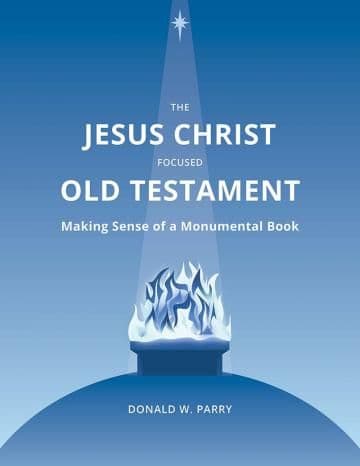Book
56 Chapters

The book of Psalms is a collection of hymns and songs that were expressed by the ancient Israelites on occasions of worship, reflection, and devotion. Significantly, the psalms are a collection of praises about the lord and His majesty, omnipotence, love, and mercy. For this reason, the Hebrew word for the book of Psalms is Tehillim, which means “praises.”
Although the book of Psalms contains 150 psalms, the evidence of the Dead Sea Scrolls psalter indicates that anciently there existed many more psalms.
The Levitical choir (2 Chr. 5:12–13) or a congregation of worshippers sung many of the psalms. At times the singing was accompanied by musical instruments of three types (see Ps. 150): winds (i.e., horn, trumpet, flute), percussion (i.e., tambourine or hand drum, cymbals), and strings (i.e., two types of lyre).
More than seventy of the psalms are attributed to or affiliated with David. Other psalms are associated with additional characters, including Moses (Ps. 90), Solomon (Ps. 72, 127), Asaph (Ps. 50, 73–83), and Ethan (Ps. 89). Many psalms are anonymous. Many have historical titles or introductions. Psalm 3 is titled “A Psalm of David, when he fled from Absalom his son.” See also Ps. 7, 18, 34, 51, 52, 54, 56, 57, 60, 63, 142.
Following the findings of biblical scholars, this chart attempts to categorize most of the psalms according to their genre. It is often difficult to categorize certain psalms, and scholars rarely agree on their genre. Additionally, many psalms belong to two or more categories; for example, Psalm 99 has elements that make it a Psalm of Praise and other elements that categorize it as a Royal Psalm.
Type | Psalms | Description |
|---|---|---|
Songs of Praise | 8, 19, 29, 33, 65, 66, 78, 93, 96–100, 103–6, 111, 113–14, 117, 134–36, 145–150 | Praises directed to the lord for His goodness, greatness, mercy, and love; for His deliverance from enemies; for His majesty, power, work as the creator; for the natural world’s testimony that the lord lives; for the lord’s magnificent kingship and kingdom. |
Songs of Thanksgiving | 18, 30, 32, 66, 92, 116, 118, 138 | Expressions of thanksgiving and joy to the lord for His divine activity among the people. |
Songs of Zion | 46, 48, 76, 84, 87, 122 | Describe the lord’s holy city as the place where His presence is found; the lord’s people desire to live in Zion and to worship Him there. |
Songs of the Temple and Liturgy | 15, 24, 50, 68, 81–82, 95, 115, 132 | Pertain to ritual, entering the temple with clean hands, worshipping the lord in His temple. |
Laments, Prayers, Songs of Petition | 3–7, 9–10, 12–14, 17, 22, 25–26, 28, 31, 36, 38–44, 51–54, 56–58, 60–61, 64, 70–71, 74, 77, 80, 83, 85–86, 88, 90, 94, 102, 108, 120, 129–30, 143 | A prayer or cry for divine help during a time of pain, distress, sickness, disappointment, or mourning or for protection against one’s enemies. |
Songs of Trust | 4, 11, 16, 23, 27, 62–63, 123–26, 131 | Songs that feature declarations of trust in the lord and His might, power, and ability to save. |
Wisdom Songs | 34, 37, 39, 49, 73, 112, 127–28, 133 | Set forth qualities and possibilities of a life filled with wisdom; describe those who walk in the lord’s path; how to obtain wisdom; characteristics of those who have wisdom. |
Songs about the Law | 1, 19, 119 | Delight in the lord’s law, its significance and power to change people; blessings to those who hearken to the lord’s instruction and counsel. |
Royal Songs | 2, 20–21, 45, 47, 72, 89, 101, 110, 132, 144 | Pertain to the king’s coronation, marriage, character, and success. Many royal psalms foreshadow the glorious reign of Jesus Christ, the messianic king. |
Imprecatory Songs | 35, 55, 59, 69, 79, 109, 137 | Righteous yearnings for the lord’s judgments against one’s enemies. |
Book
56 Chapters
Items in the BMC Archive are made publicly available for non-commercial, private use. Inclusion within the BMC Archive does not imply endorsement. Items do not represent the official views of The Church of Jesus Christ of Latter-day Saints or of Book of Mormon Central.